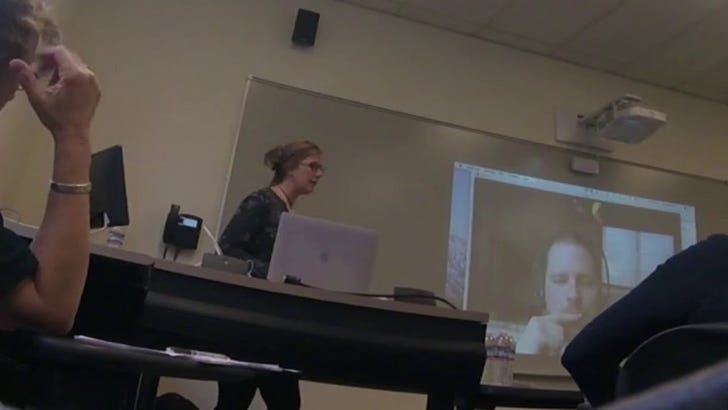Activist Gender Industry Doc Who Dismissed Concerns Over Double Mastectomies for Teen Girls Conceals Study Results Showing No Mental Health Benefits for Puberty Blockers
After receiving $10 million in taxpayer funds for a study on the effects of puberty blockers on the mental health of gender-confused children, the lead researcher says she won’t publish the results because she doesn’t want her work to be “weaponized.”
Dr. Johanna Olson-Kennedy, who heads the nation’s largest gender clinic for young people at the Children’s Hospital of Los Angeles, told the New York Times the study she launched in 2015 – after receiving funding from the National Institutes of Health (NIH) – ultimately found puberty blockers did not improve mental health in children with gender distress, an outcome that differed from an older Dutch study that ignited the transgender medicine trend called “gender-affirming care.”
In a baseline report in 2020, Olson-Kennedy and her team explain they “recruited” 95 children with a mean age of 11 years “from four pediatric academic medical centers in the United States prior to initiating medical treatment for gender dysphoria.”
Ultimately, however, their results did not replicate those of the Dutch study, Olson-Kennedy explained to the Times.
“They’re in really good shape when they come in, and they’re in really good shape after two years,” she said.
The Times, however, observed a contradiction in her “earlier description of the group, in which Dr. Olson-Kennedy and her colleagues noted that one quarter of the adolescents were depressed or suicidal before treatment.”
Asked why she will not publish her data, Olson-Kennedy replied, “I do not want our work to be weaponized,” she said. “It has to be exactly on point, clear and concise. And that takes time.”
“She said she was concerned the study’s results could be used in court to argue that ‘we shouldn’t use blockers because it doesn’t impact them,’ referring to transgender adolescents,” the Times reported, adding that “[o]ther researchers, however, were alarmed by the idea of delaying results that would have immediate implications for families around the world.”
This is not the first time Olson-Kennedy has “alarmed” others. In March 2018, she recommended in a study published in JAMA Pediatrics that gender-confused girls as young as 13 receive top surgery. She and her team concluded, based on 136 “completed surveys” at her gender clinic that “[c]hest dysphoria was high among presurgical transmasculine youth, and surgical intervention positively affected both minors and young adults.”
“Given these findings, professional guidelines and clinical practice should consider patients for chest surgery based on individual need rather than chronologic age,” she wrote.
In the video above from later in 2018, Olson-Kennedy is heard at a Gender Spectrum Professional Symposium describing her work and stating that a double mastectomy for a young teen girl is no cause for concern, even if the teen regrets the decision later on in life. The gender industry activist told her audience that most of the life-changing decisions teen girls make are sound.
“Adolescents actually have the capacity to make a reasoned, logical decision,” she said. “And here’s the other thing about chest surgery. If you want breasts at a later point in your life, you can go and get them.”
Regarding Olson-Kennedy’s decision to withhold her study’s results, author J.K. Rowling commented on X:
We must not publish a study that says we're harming children because people who say we're harming children will use the study as evidence that we're harming children, which might make it difficult for us to continue harming children.
Erica Anderson, a clinical psychologist and expert on gender-dysphoric youth, told the New York Post she was “shocked” and “disturbed” about Olson-Kennedy’s decision to conceal results of her research.
“We’re craving information about these medical treatments for gender-questioning youth. Dr. Olson-Kennedy has the largest grant that’s ever been awarded in the US on the subject and is sitting on data that would be helpful to know,” Anderson explained, adding, “It’s not her prerogative to decide based on the results that she will or won’t publish them.”
Anderson continued that withholding results of such a study for fear of negative feedback is “contrary to the scientific method”:
You do research, and then you disclose what the results are. You don’t change them, you don’t distort them, and you don’t reveal or not reveal them based on the reactions of others. You report as scientists what you’ve learned.
Olson-Kennedy’s full presentation at the Gender Spectrum symposium can be viewed here.





If you want breasts at a later time, you can get them. And can you breast feed your babies with those new breasts. Teens make bad decisions and it is up to doctors to make sure they don't follow through instead of encouraging these life altering, irreversible decisions. Choosing a college is not life altering nor does it cause permanent damage to your body.